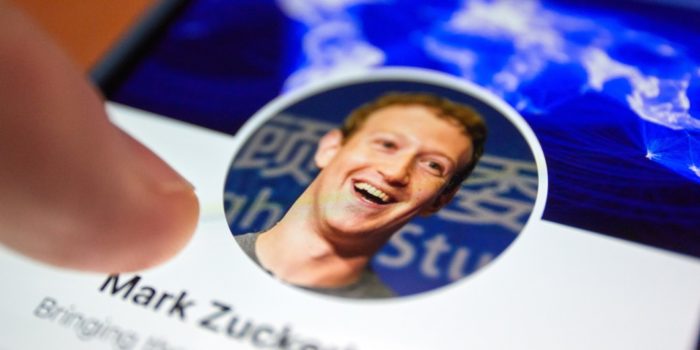Good Monday morning. It’s May 18th. Next Monday is Memorial Day. We’ll take the long weekend off and be back in your email on June 1st.
We’ve created new pricing during this crisis for nonprofits and small businesses that need help maintaining their online presence on websites, email, and social media.
Today’s Spotlight is 1,253 words, about a 4 1/2 minute read.
1. News to Know Now
a. Twitter is cracking down on misinformation and deliberate disinformation. The company says it will remove tweets that are deliberately misleading and that have a severe propensity for harm even if that content is sent by the president. The company released this graphic to explain how it would act in the future. (Twitter announcement)

b. A Google Chrome update launching this week will feature the ability to create tab groups. The feature will let you color-code and name groups of tabs by project or task. Here’s how they work. (Google announcement)

c. Facebook has settled a suit on behalf of the contractors who moderate extreme content posted to the site. That content includes graphic videos of suicide, violence, sexual abuse, and more. The company is establishing a fund that provides $1,000 for all moderators to seek mental health services and more if someone is diagnosed with PTSD or another mental health condition. The Verge has broken all the news on this story from the beginning so here’s their coverage of the suit being settled.
2. COVID-19 Online Resources and News
Trackers
Covidly — my go-to
Our World in Data — Oxford nonprofit — also excellent
Hardest Hit ZIP codes in 5 Metro Areas with Analysis
Contact Tracing & Data
Icelanders are using a Covid App & It Hasn’t Helped Much
Health Officials: Apple-Google Virus Tracking System Will Be Worthless
India’s Contact Tracing App Tops 100 Million Users in 41 Days
Tech News
Amazon Calls for Federal Price Gouging Law
LinkedIn Pages Can Now Host Virtual Live Events
The Real Bailout is on GoFundMe
Twitter Says Staff Can Continue Working From Home Permanently
That Amazon story isn’t counterintuitive. Here is a real screenshot from Amazon I made while looking for an out-of-stock breakfast cereal. Honeycomb might be tasty, but I can’t think of a breakfast cereal worth 80 cents an ounce.

COVID-19 Creates New Transportation Opportunities
Concerns about COVID-19 are moving us faster to drone delivery, remote operated trucks and local robots like the ones we’ve shown you at George Mason University. Here is a special section of stories to catch you up.
Ann Arbor Robots Delivering Four Times As Many Food Orders
EverDrone Delivers Defibrillators in Sweden
Food, Grocery Delivery Robots Slated to Launch Soon
Medical Cargo Flying on Passenger Aircraft
Truck Drivers at Home to Pilot Driverless Vehicles
Uber Mandates Masks for Drivers and Passengers
3. Search Engine Optimization News
Google has begun testing drop shadows to visually separate search results. The subtle graphic functions like a box around one search result to separate it from the next. There are multiple examples on Twitter via Search Engine Journal.
Google may be facing antitrust lawsuits from the Justice Department and state attorneys general, according to reporting from The Washington Post. Justice officials have broadened their original investigation of advertising practices to also include the search engine portion of the business. The federal case could come as early as this summer, according to the report.
4. Also in the Spotlight — Interactive Facebook Tools Launch
Facebook and its subsidiaries are in the midst of a user boom. Traffic driven by the COVID-19 novel coronavirus is largely responsible for ten percent user growth and significantly increased engagement.
Consider: there are 2.6 billion Facebook accounts logged into at least monthly. There are only 7.6 billion people on the planet, so no, your two accounts don’t drive the company’s usage up. Engagement is also up, especially in hard-hit places like the U.S. and Italy.
That’s why you’re now seeing interactive Facebook tools regularly popping up. In only several weeks, we’ve seen the introduction of Facebook Messenger video chats for groups, the rollout this weekend of personal cartoon avatars, and the announcement that Facebook has bought Giphy, the largest of the short looping video repositories.
Facebook is acting as nimble as a startup in some ways, but also flashing cash as evidenced by the $400 million it paid for Giphy. Facebook is also capitalizing on ideas created by others, something that Snapchat often accuses Instagram of doing.
Snap originally bought Bitstrips for $114 million to incorporate the company’s famous cartoon avatars. After evangelizing the marketplace, Facebook launched a competitor just as it copied Zoom with its new Messenger group chats.
These interactive Facebook tools also have an escapism component. You don’t have to meet people in person when you can video chat groups, you don’t have to post a picture of yourself or reply to others using those, whaddyacallem, words. And if you really want to invoke a feeling, you can now use one of Facebook’s library of millions of pop culture videos.
5. Following Up: Plandemic Disinformation Video
We told you last week about the “plandemic” video filled with disinformation that was debunked by multiple fact-checking companies. Since then we’ve learned that an ex-Google employee and conspiracy theorist helped direct the marketing plan to get the video the widest possible audience.
Read Vice’s expose about Zach Vorhies
6. Debugging: The CARES Act
Multiple people, including business leaders and professionals, messaged me last week about another video making the rounds.
This video claimed that the CARES Act was introduced to Congress on January 24, 2019 — more than one year before COVID-19 was news in the U.S. They thought that was proof that the entire pandemic was either staged or exaggerated.
The short version of this fact check is that Senate Majority Leader Mitch McConnell used existing legislation that was tabled but already in the system for this bill. Congress then amended the existing bill with the CARES Act legislation.
Read about the sausage making at the Annenberg Public Policy Center
7. ProTip: Add a Facebook Avatar
You were probably running or baking bread or doing something super meaningful this weekend instead of building in nuances to your Facebook avatar.
Here’s a how-to with pictures if you’re ready to make yours
8. Great Data: Zoom Worth More Than 7 Airlines
Ted Leonsis famously said that AOL’s biggest competition wasn’t another service but a sunny day at a nearby park. That’s the way to understand your true competitors.
And while Zoom may not seem like an airline competitor, its ability to permanently disrupt business air travel for much less expensive video conferencing is something the airlines understand well.
Lufthansa Created The Data, Visual Capitalist Made It Stand Out
Screening Room: Dominos & Safety
10. Coffee Break: The Goats Have Arrived
Forget the canals of Venice. My uplifting nature story this week features the Goats of San Jose.
Check out these 200 kids and their parents in suburbia
Here are three ways that we can help you:
1. Get a free SEO audit on our website.
2 Have a simple, fact-based question about digital marketing? Reply & ask George for free.
3. If your organization needs help with search, social media, or advertising, have a look at what we do.
See you in two weeks.


